Search
for
Sort by
Research
30-60 / 1000+ results
research The Impact of Individual Lifestyle and Status on the Acquisition of COVID-19: A Case-Control Study
Your lifestyle and health can affect your chances of getting COVID-19; not enough sleep, lots of exercise, and hair loss can increase risk, while washing hands, eating fruit daily, and taking vitamins A and C can lower it.

research Prognostic Factors in Mexican Patients with Patchy and Other Types of Alopecia Areata
Early onset, severe types, nail changes, family history, and body hair loss worsen alopecia areata prognosis; sticking to treatment helps.

research ST14 Interacts With TMEFF1 and Is a Predictor of Poor Prognosis in Ovarian Cancer
High levels of ST14 and TMEFF1 proteins in ovarian cancer are linked to worse patient outcomes and may be a new treatment target.

research Diagnostic Value of VDR in Bone Metastasis and Prognosis of Patients with Breast Cancer and Expression Correlation Between Vitamin D Receptor and Hairless Protein
Low Vitamin D receptor levels in breast cancer are linked to worse outcomes and more bone metastases, and could be a marker for prognosis.
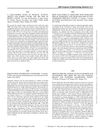
research A Case-Control Study of Physical Activity, Obesity, and Energy Intake and the Risk of Kidney Cancer
Being obese and eating too many calories may increase the risk of kidney cancer, but physical activity doesn't seem to affect this risk.
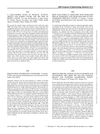
research Prostate Specific Antigen Levels in Diabetic and Non-Diabetic Men from the 2001–2002 National Health and Nutrition Examination Survey
Long-term diabetes is linked to lower prostate cancer risk.
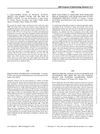
research Body Mass Index Is Associated With Increased Risk Of Aggressive And Decreased Risk Of Non-Aggressive Prostate Cancer
Higher BMI is linked to a lower risk of non-aggressive prostate cancer and a higher risk of aggressive prostate cancer.

research Cancer Risk by the Subtype of Alopecia
People with certain types of alopecia have a slightly higher risk of cancer, especially thyroid, bladder, and prostate cancers.

research The Impact of Healthcare Setting on Post-Covid Mood Disorders: A Single-Centre Perspective from Southern Italy Respiratory Intensive Care Unit
Patients treated in Respiratory Intensive Care Units for COVID-19 are more likely to get mood disorders than those in other care settings.

research Women With Alopecia Exhibit a Higher Risk for Thyroid Cancer: A Nationwide Cohort Study
Women with alopecia may have a higher chance of getting thyroid cancer.

research Long-Term Treatment with Finasteride 1 mg Decreases the Likelihood of Developing Further Visible Hair Loss in Men with Androgenetic Alopecia
Finasteride 1 mg helps prevent more hair loss in men with male pattern baldness.

research A Population-Based Study of the Risk of Osteoporosis and Fracture with Dutasteride and Finasteride
Dutasteride and finasteride have similar risk for osteoporosis and fractures in older men.

research Tamsulosin Versus Finasteride: Effect on Bother and Urinary Flow
Tamsulosin works faster, but both drugs have similar effects after 6 months.

research High Real-World Medication Adherence and Durable Clinical Benefit in Medicare Patients Treated with 5-Alpha Reductase Inhibitors for Benign Prostatic Hyperplasia
Older patients sticking to their prostate medication saw lasting health benefits.

research Risk of Psychiatric Disorders Following Polycystic Ovary Syndrome: A Nationwide Population-Based Cohort Study
Women with PCOS have a higher chance of experiencing depression, anxiety, and sleep disorders.

research Immunohistochemical, Pharmacovigilance, and Omics Analyses Reveal the Involvement of ATP-Sensitive K+ Channel Subunits in Cancers: Role in Drug-Disease Interactions
ATP-sensitive K+ channel subunits, particularly Sur2A, play a significant role in various cancers.

research Polycystic Ovarian Syndrome: Prevalence and Its Correlates Among Adolescent Girls
About 15% of adolescent girls in a region of India have Polycystic Ovarian Syndrome, which is more common in those born by cesarean, with wisdom teeth, or with central obesity.

research Identification of Ferroptosis-Related Biomarkers in Alopecia Areata Through Machine Learning
Four genes are potential markers for hair loss condition alopecia areata, linked to a specific type of cell death.

research The Reduction of Male Lower Urinary Tract Symptoms Is Associated With a Decreased Risk of Death
Improving symptoms of male urinary problems may lower the risk of death.

research Data-Driven Analysis to Understand Long COVID Using Electronic Health Records From the RECOVER Initiative
Long COVID patients have more health issues than non-infected people.
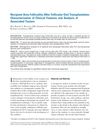
research Recipient Area Folliculitis After Follicular-Unit Transplantation: Characterization of Clinical Features and Analysis of Associated Factors
Postoperative folliculitis after hair transplants is a minor issue that doesn't relate to patient details or how much hair is transplanted.

research Relationship of Dietary Intake of Omega-3 and Omega-6 Fatty Acids with Risk of Prostate Cancer Development: A Meta-Analysis of Prospective Studies and Review of Literature
Eating more omega-3 and less omega-6 fatty acids may lower the risk of developing prostate cancer.
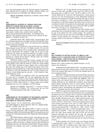
research Comparison of the Incidence of Secondary Cancers After IMRT, Brachytherapy, and Surgery for the Treatment of Prostate Cancer
Different prostate cancer treatments have similar risks of secondary cancers and related mortality when considering patient age and smoking history.

research Non-Invasive Diagnosis of Prostate Cancer from Body Fluids Using a Panel of Tumor Suppressor Genes
Blood tests for tumor cells could improve prostate cancer diagnosis and treatment; hair loss severity linked to a gene affecting prostate conditions.

research Anti-Inflammatory, Cyclooxygenase Inhibitory, and Antioxidant Activities of Standardized Extracts of Tridax Procumbens L.
Extracts from Tridax procumbens L. have strong anti-inflammatory and antioxidant effects and block inflammation-causing enzymes.

research Construction of Regulatory Network for Alopecia Areata Progression and Identification of Immune Monitoring Genes Based on Multiple Machine-Learning Algorithms
Researchers found four genes that could help diagnose severe alopecia areata early.

research The Potential of Circulating Endothelial Cells as Prognostic Biomarkers in Prostate Cancer
CEC levels may be a useful marker for predicting prostate cancer progression.

research Androgenetic Alopecia at Various Ages and Prostate Cancer Risk in an Equal Access Multiethnic Case Control Series of Veterans
Early baldness increases prostate cancer risk, radiotherapy and surgery have similar second cancer rates, and ALA may reduce prostate cancer risk.

research Associations Between Variants in the Cyclooxygenase 2 Enzyme Gene (PTGS2) and Development of Benign Prostate Enlargement
Certain gene variants may raise the risk of prostate enlargement, but taking NSAIDs could reduce this risk.